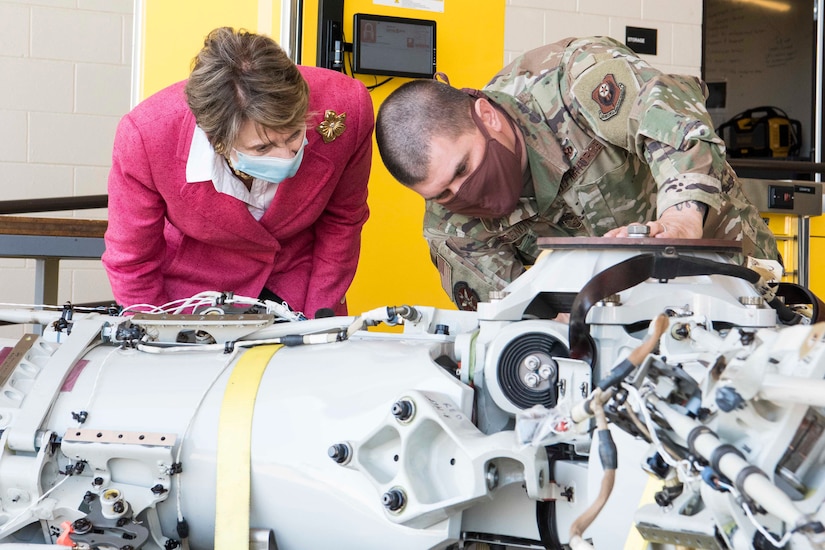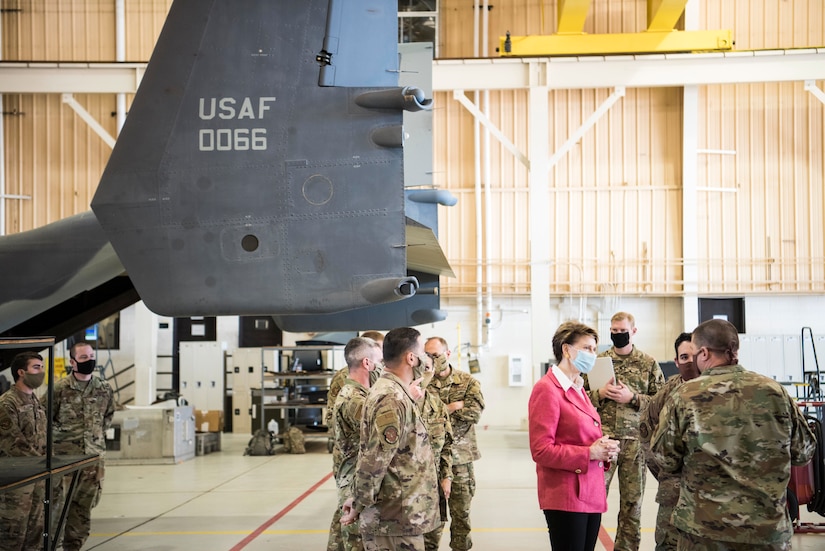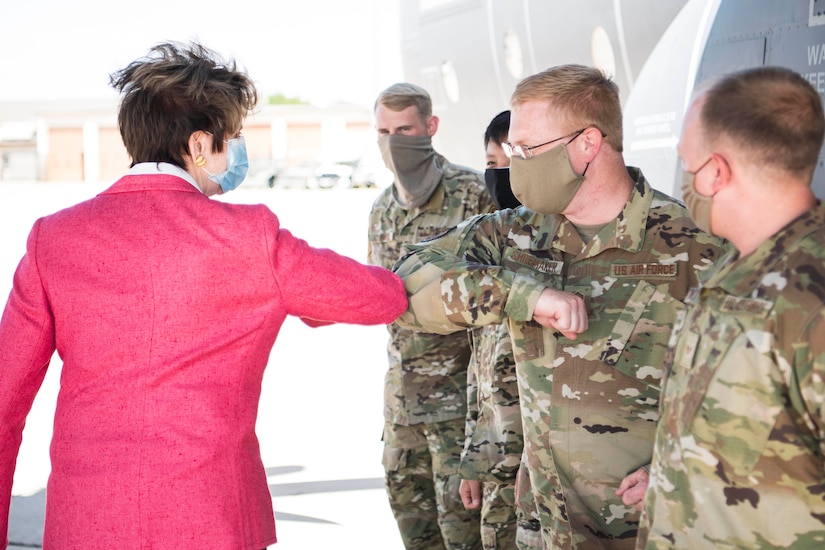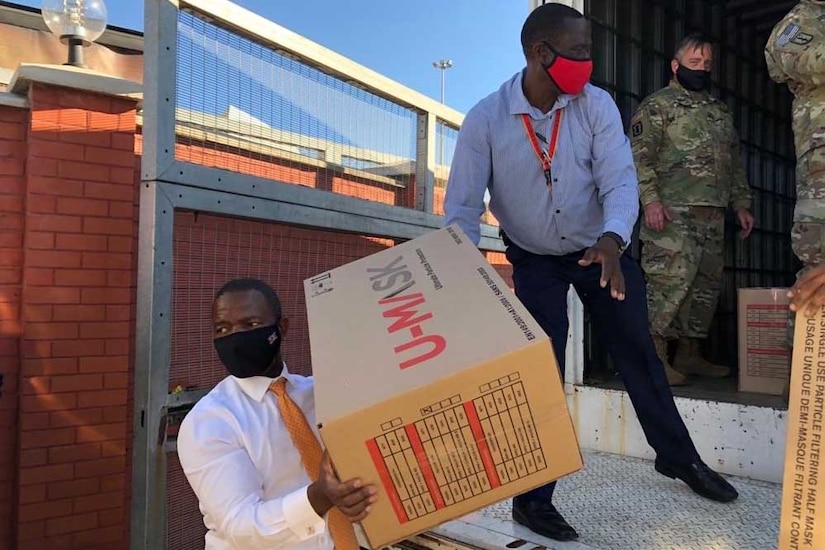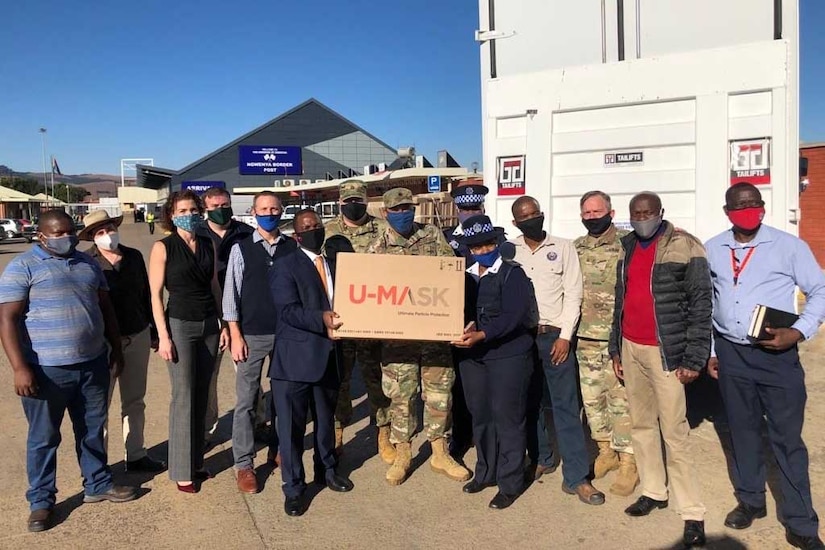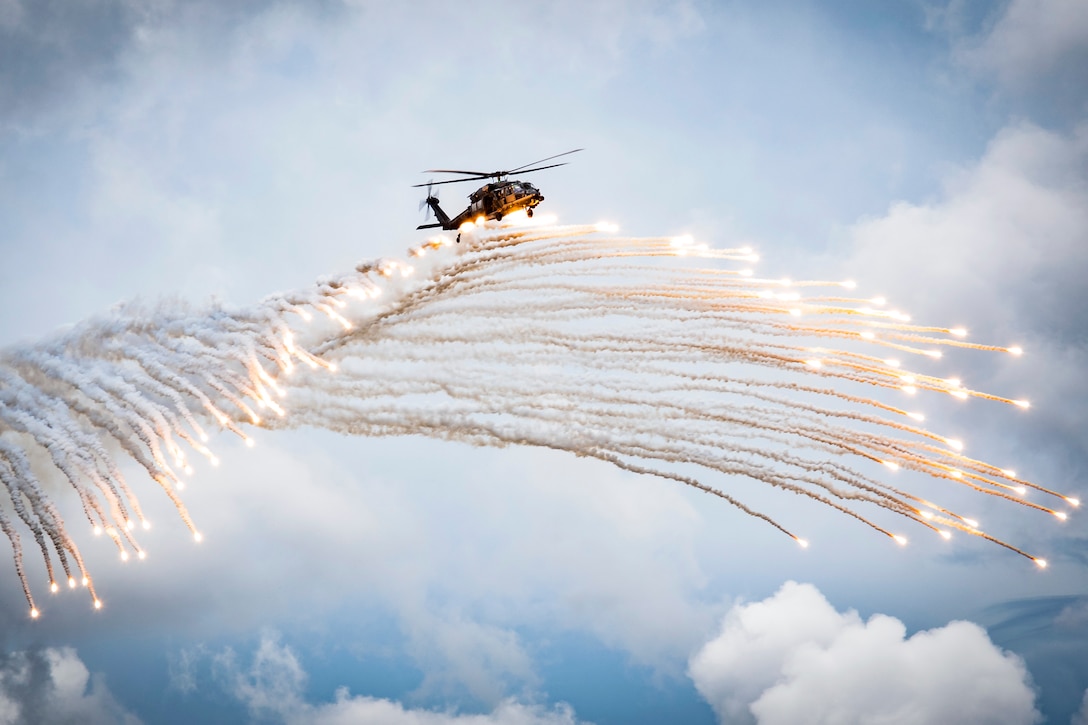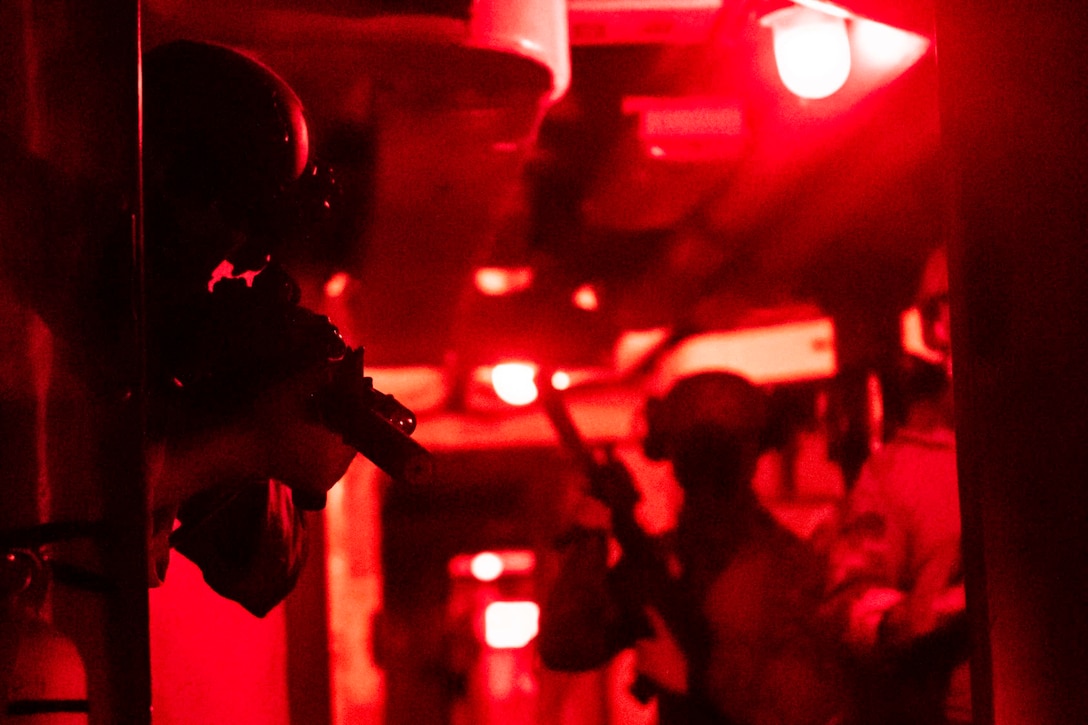Faced with school closures due to the COVID-19 pandemic, California Military Department state active duty soldiers who serve as full-time cadre at California Military Institute found a new way to serve through a school meal program at Pinacate Middle School in Perris, California.
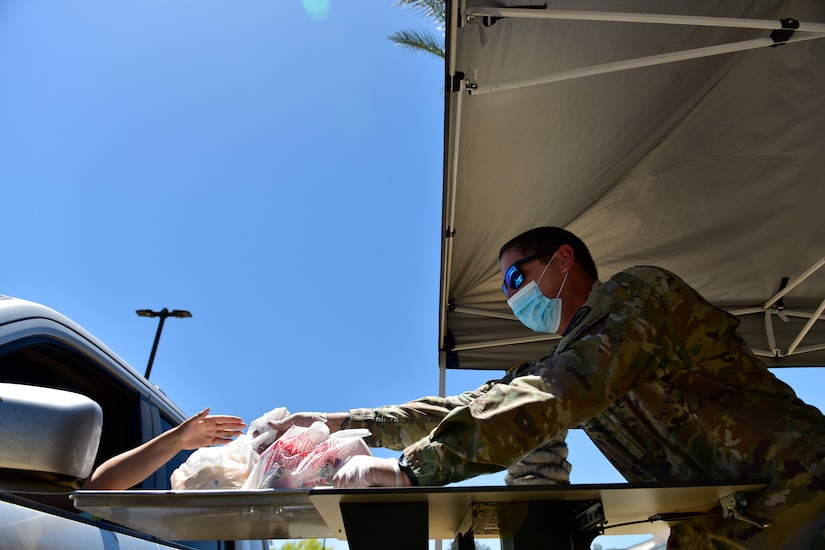
Army Sgt. 1st Class Benjamin Federici, the California State Guard noncommissioned officer in charge of operations at the California Military Institute, and Army Staff Sgt. Patrick Kelhi, with the California Army National Guard, volunteer twice a week, packaging and distributing meals to students in need.
"We're just here to help," Kelhi said. "The kids are going through enough, and no one has experienced this before. We’re a little bit of a solid foundation for the kids and family. They know we will be here on Mondays and Wednesdays to give out meals. They rely on us during this time of uncertainty. It's amazing."
The soldiers work with members of the TerraBites Cafe, which provides nutritional services to the Perris Union High School District. When all of the district's schools closed March 16, the TerraBites Cafe continued its meal programs.
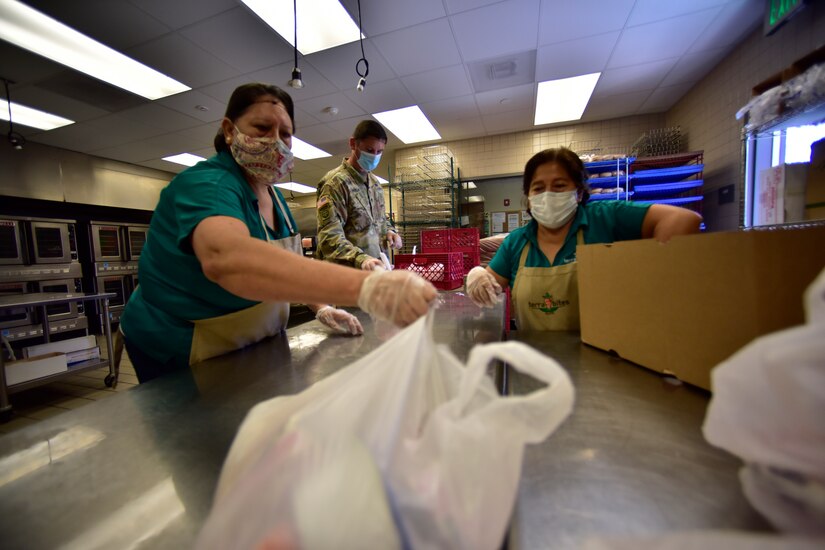
Louise Lopez, the nutritional services lead at the middle school, runs the meal distribution efforts that started shortly after the school closures.
"The kids count on these meals," Lopez said. "We have a really high percentage of students that receive free and reduced meals. We want to continue to meet that need, because we want to make sure they're still eating. For a lot of them, breakfast and lunch are their main meals, and it comes from us."
"I couldn't even put a word to it, it tears me up," she continued. "It's just so important. It's everything for a lot of them, and it's everything for a lot of parents, too."
Kelhi and Federici were quick to offer their help to the effort.
"When this started, we talked about it in our office and how these kids were going to be taken care of," Kelhi said. "So many kids rely on these meals. When we had the opportunity to volunteer here, we jumped on it. It's busy, it's hectic but the smiles on the kids' faces is a huge payoff."
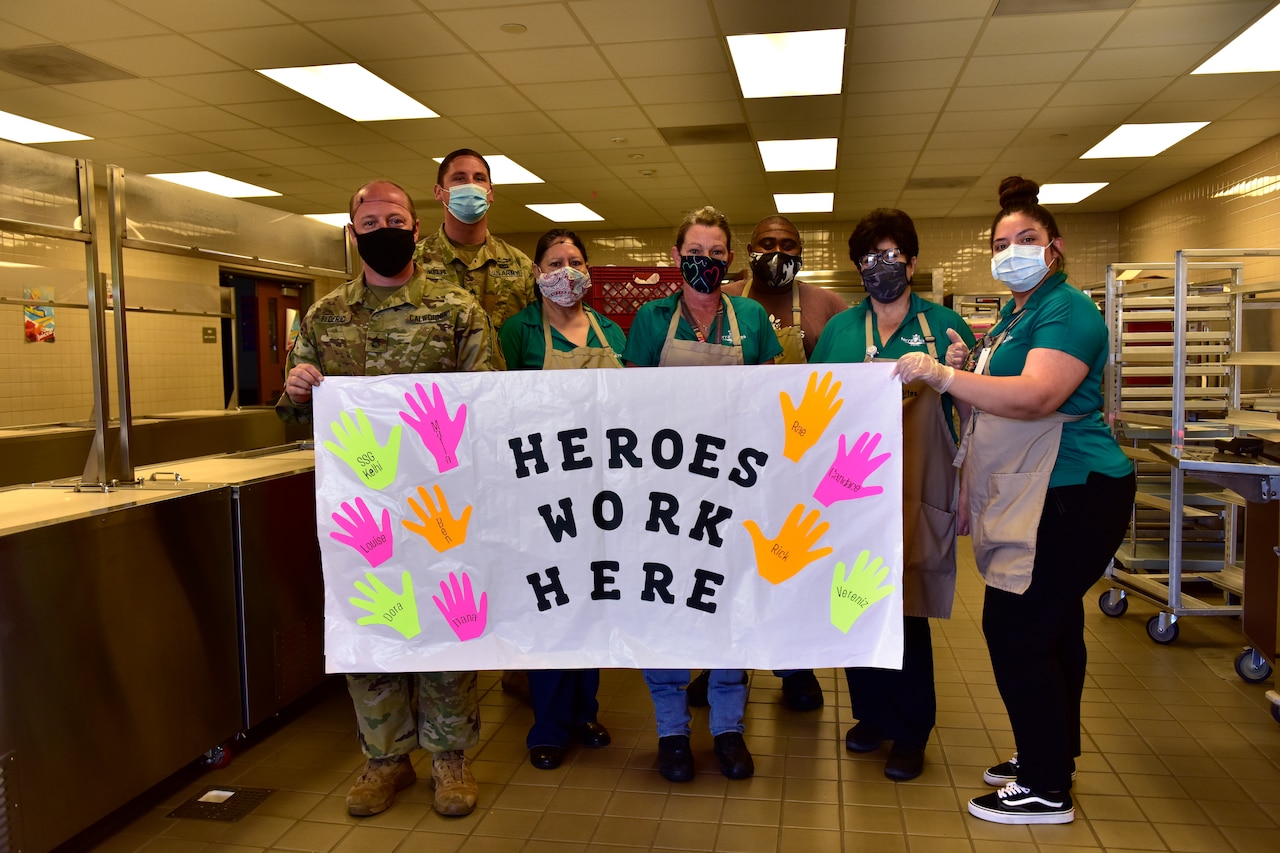
The twice-weekly distribution starts at 7 a.m. with staff members cooking and packaging the meals. Each meal includes a hot lunch item and two additional days' worth of breakfast and lunch items. The food covers the five days of meals children would have received if the school was still in session.
"Right now, what we're doing is making sure they get breakfast and lunch five days a week," Lopez said. "We have a system where the parents pull up, roll the window down, put their hand out of their window and show three fingers, four fingers, or whatever it is they need. Then we put the corresponding number of meals on a tray for them to grab."
Many of the children are not present for the meal pick-up, but some do ride along with parents just to see a familiar face and have a sense of normalcy.
"A lot of students will come through the line with their parents and say, 'That's my lunch lady,' or 'That’s my teacher,'" Lopez said. "They’ll wave, and the parents will wave at the guardsmen. The students get excited because we’re familiar to them."
"I want to go back to school," said Rogelio Lopez, who is 13 and a CMI cadet and member of the California Cadet Corps. "I miss my teachers and my friends, so it's cool to come through to get lunch and see them. This is amazing, because at the beginning, my mom couldn't get some things at the store because they ran out."
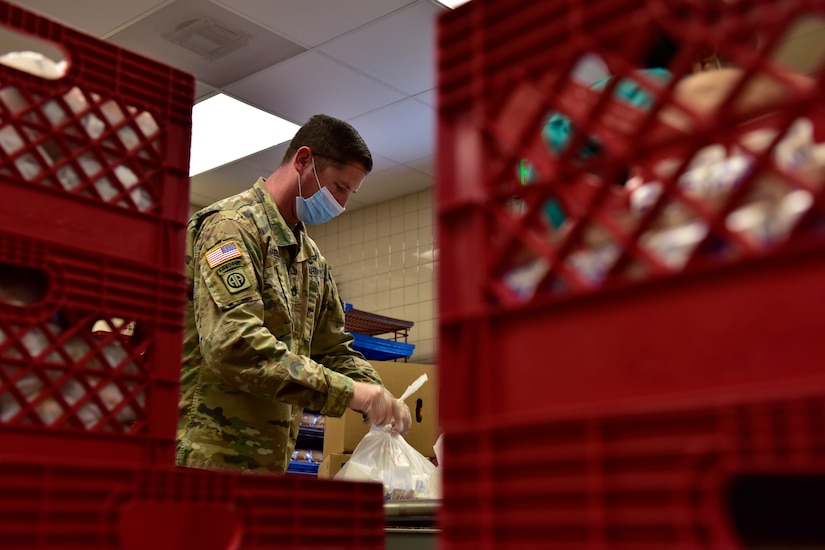
Kelhi and Federici help the TerraBites Cafe staff package the food and lead the drive-thru distribution to families.
As cadre members, both Federici and Kelhi interact daily with students in grades 5-12 who attend CMI, which is a military-themed public charter school in Perris. The school uses the California Military Department's youth leadership program, California Cadet Corps, as its military foundation, and members of the California state and national guards augment teachers to help facilitate the school’s cadet program.
"It helps out to have that face-to-face with my students, check on them and crack a dad joke to make them smile and laugh," Federici said. "I try to remind them that this will be over soon. Some of the students were upset that everything that was in the works got cancelled. I tell them this is just a setback."
The meal distribution means much more to Federici and Kelhi. For the pair, it's about more than handing out food.
"I feel a sense of pride that the kids are able to come here and get some nourishment, but also engage with us, too," Federici said. "If I can make that dad or mom or kid or grandparent smile and uplift their spirit, it helps me to go home to my kids and know I'm adding some good to a world that's chaotic right now."
(Air Force Tech. Sgt. Julianne Showalter is assigned to the California Air National Guard.)
